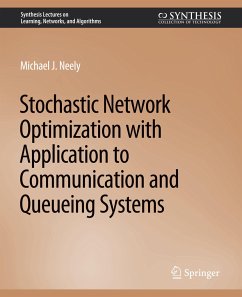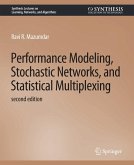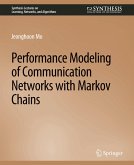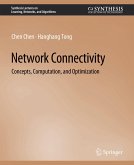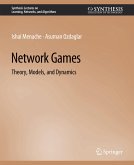This text presents a modern theory of analysis, control, and optimization for dynamic networks. Mathematical techniques of Lyapunov drift and Lyapunov optimization are developed and shown to enable constrained optimization of time averages in general stochastic systems. The focus is on communication and queueing systems, including wireless networks with time-varying channels, mobility, and randomly arriving traffic. A simple drift-plus-penalty framework is used to optimize time averages such as throughput, throughput-utility, power, and distortion. Explicit performance-delay tradeoffs are provided to illustrate the cost of approaching optimality. This theory is also applicable to problems in operations research and economics, where energy-efficient and profit-maximizing decisions must be made without knowing the future. Topics in the text include the following: - Queue stability theory - Backpressure, max-weight, and virtual queue methods - Primal-dual methods for non-convex stochasticutility maximization - Universal scheduling theory for arbitrary sample paths - Approximate and randomized scheduling theory - Optimization of renewal systems and Markov decision systems Detailed examples and numerous problem set questions are provided to reinforce the main concepts. Table of Contents: Introduction / Introduction to Queues / Dynamic Scheduling Example / Optimizing Time Averages / Optimizing Functions of Time Averages / Approximate Scheduling / Optimization of Renewal Systems / Conclusions
Bitte wählen Sie Ihr Anliegen aus.
Rechnungen
Retourenschein anfordern
Bestellstatus
Storno

